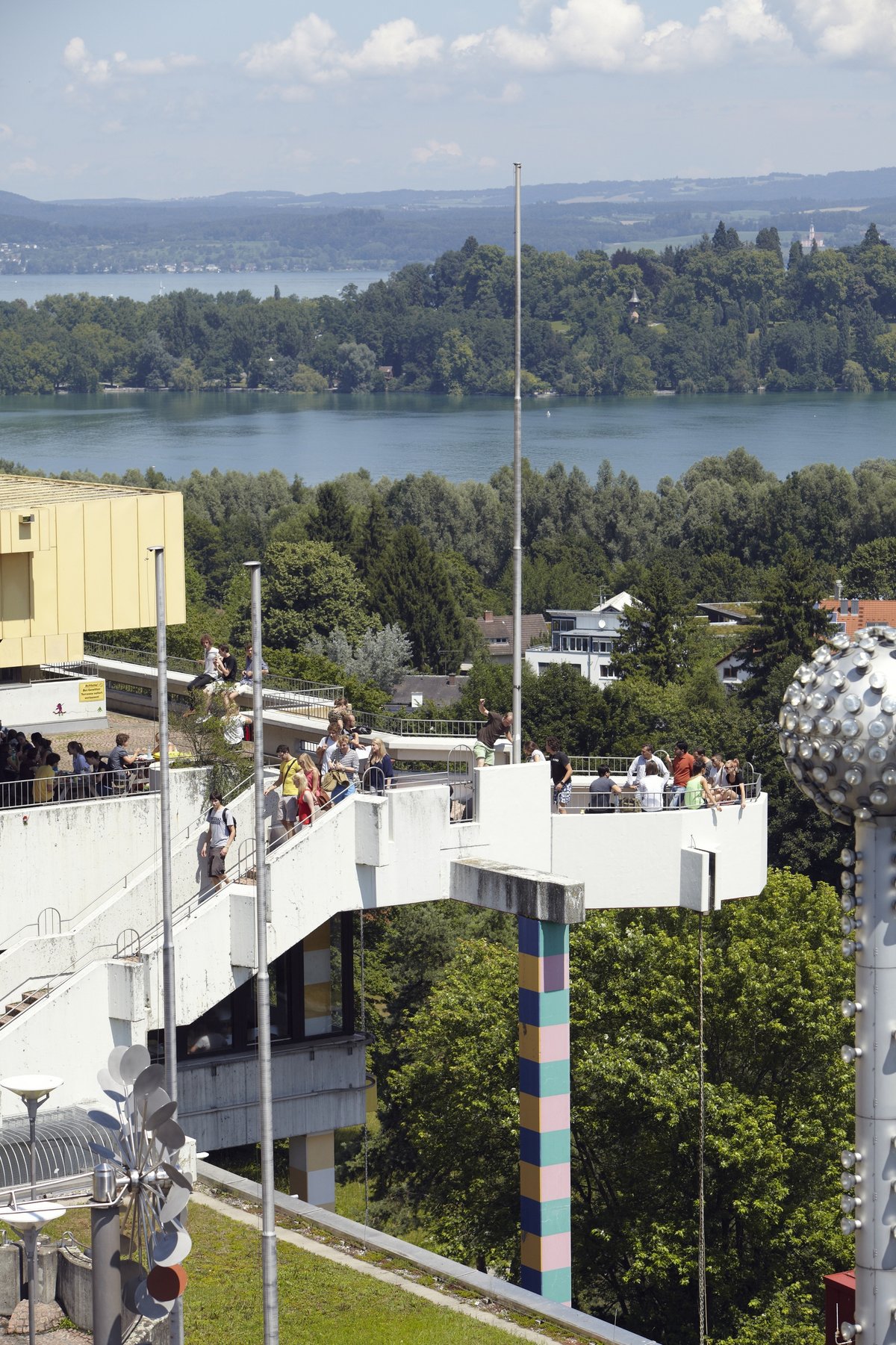
The University of Konstanz is a centre of excellence in teaching and research, with a reputation spanning well beyond national borders.
In October 2007, the University was awarded the status of "University of Excellence" by the German Federal Government - only nine universities nationwide have achieved this status.
The University is divided into three faculties: Humanities, Law, Economics and Politics, and Sciences. These are in turn subdivided into 13 departments. The Faculty of Humanities comprises the departments of Philosophy, History and Sociology, Literature, and Linguistics. The Faculty of Law, Economics and Politics encompasses the School of Law, the Department of Economics, and the Department of Politics and Management. The Faculty of Sciences consists of the departments of Mathematics and Statistics, Computer Science and Information Engineering, Physics, Chemistry, Biology, and Psychology.
The establishment of the University of Konstanz in 1966 marked the arrival of a new distinctive model within the ensemble of German universities. It represented a modern prototype for smaller, leaner and more compact universities and was equipped with the goal of effectively competing with national and international universities through its combined energy and its ability to innovate. There has hardly been a national ranking in which the University and its departments have not occupied one of the premier positions. The University is fully integrated into the global academic network, maintaining relations with 200 universities worldwide. International students from 80 countries are enrolled at the University and represent 15% of the student body. A study of the Humboldt Foundation has also shown that the University has the largest proportion of international guest researchers among all German universities.
The University was founded as a research university, guided by the principle that science is shaped not by tradition, but by research. Today research demands both the further development of specialist knowledge and the capability of interdisciplinary cooperation. In the three tightly structured faculties with their interdepartmental collaborative research centres, graduate colleges and research units, academic teaching develops out of the current state of research. The University’s commitment to a high level of research activity, the creation of research profiles and the promotion of interdisciplinary research is reflected in the figures: Konstanz is one of the largest recipients of independent research funds among the German universities.
The research-oriented teaching at the University of Konstanz is immune to obsolescence. Students are integrated into research through projects, research-based courses as well as through employment as temporary assistants. They know their professors not only from hearsay, are not confined to studying and learning in their living quarters, but in research teams and well-organised practical training. The clearly structured degree courses have ensured that the duration of study in Konstanz has always been shorter than at other German universities.
